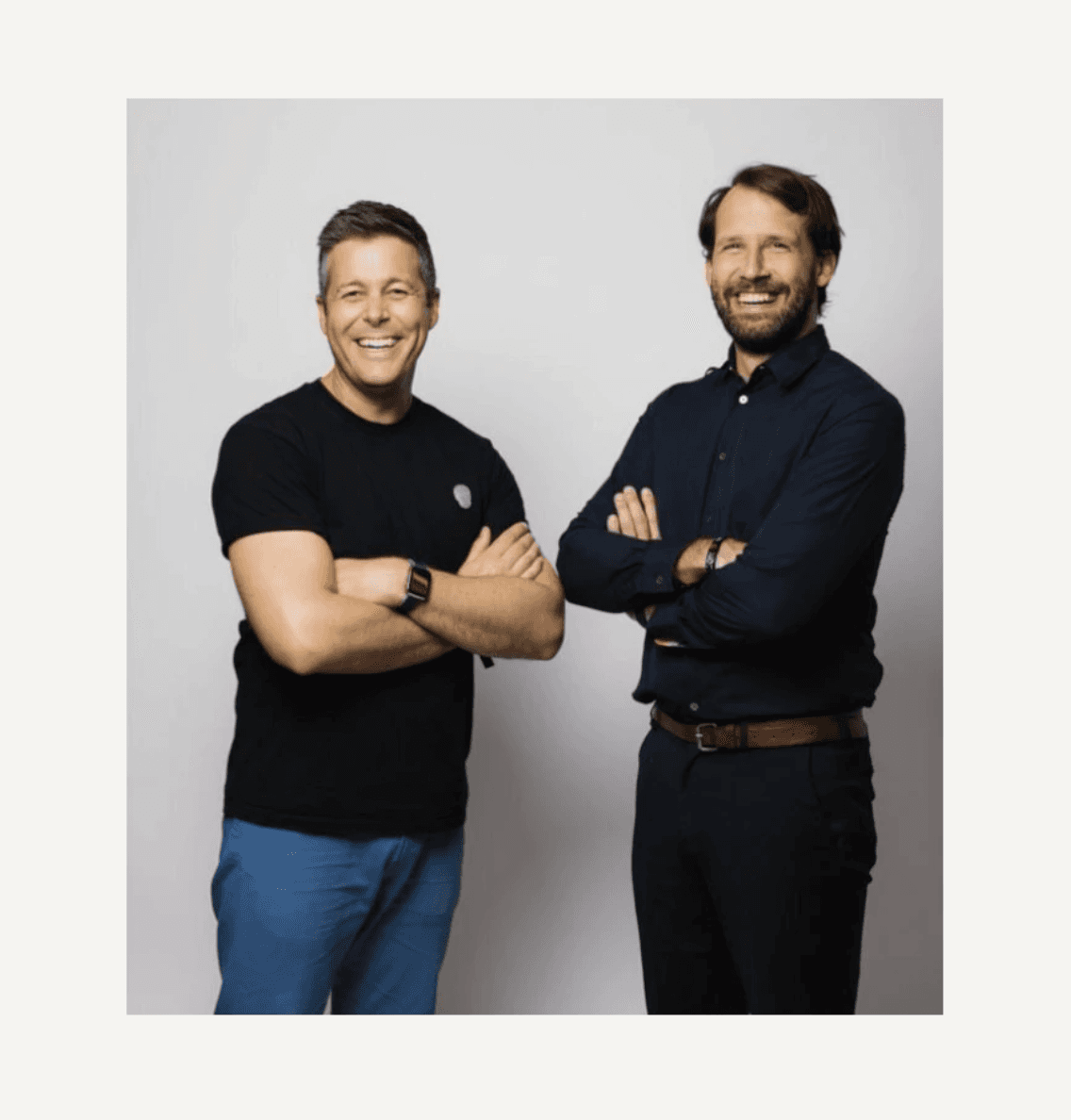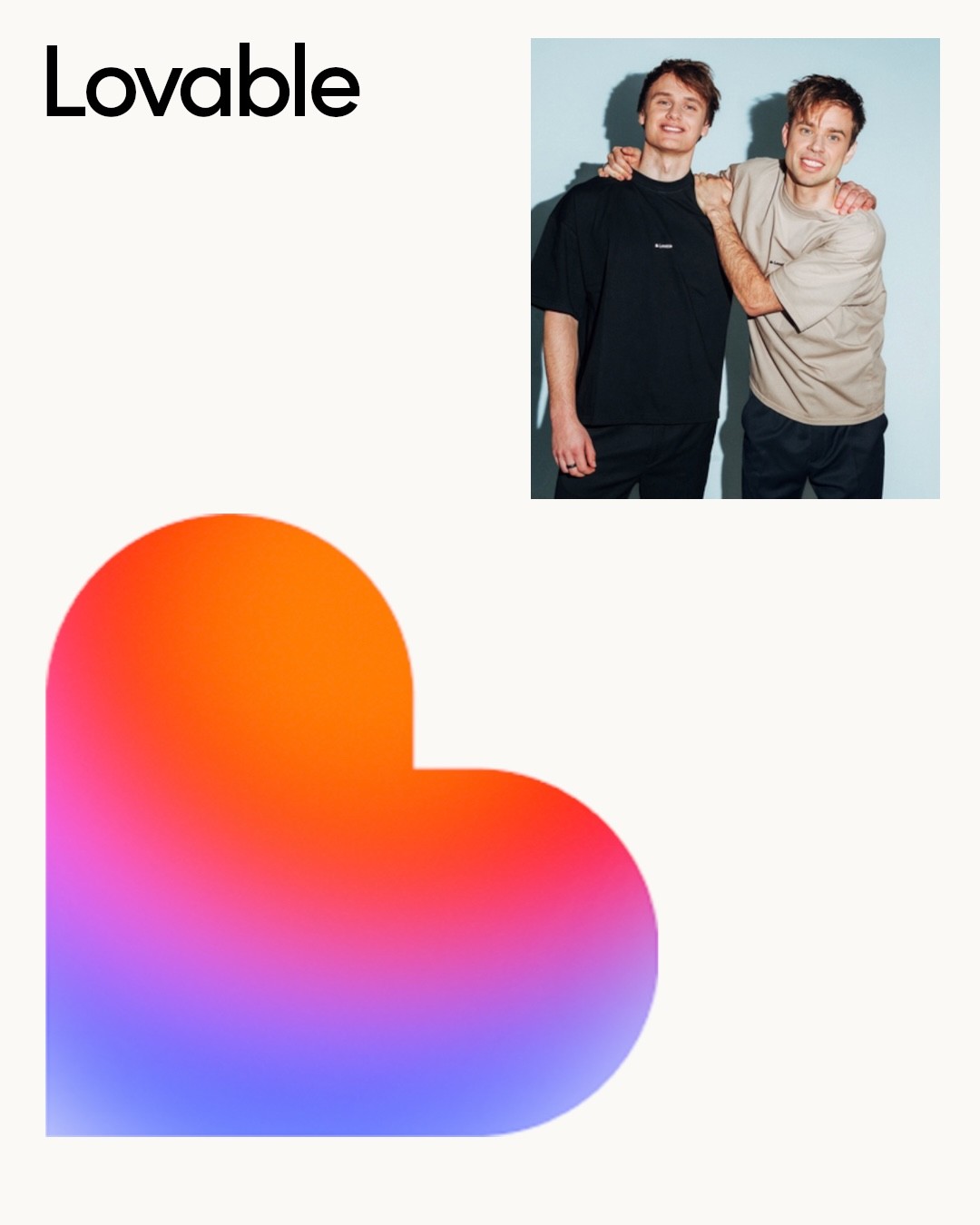May 18, 2022
5min read

Authors
From students to teachers, how one company is broadening access to the world of crypto
Filip Martinsson and Ivan Liljeqvist, Co-Founders, Moralis
Photos: Christopher Hunt
Plenty of friendships are forged in lecture theatres and study rooms in universities around the globe, but few of them lead to a world-changing business proposition that can garner $13.4 million of investment in seed funding in 2021 and an additional $40 million in a Series A funding round, announced last week.
But the computer science classrooms that Ivan Liljeqvist and Filip Martinsson inhabited during their studies in the 2010s gave birth to Moralis, the next-gen Web3 development platform that is revolutionising the present and future of web development. While Moralis itself has worked quickly to capitalise on the Web3 revolution, the duo’s journey with the blockchain has been a long history. They launched Moralis in 2020, setting it live in June 2021 after an open beta phase.
“We’ve both been developers since we were kids,” says Liljeqvist. “And we’ve both been in crypto for quite some time — since 2013.” That long-tenured insight into the worlds of development and cryptocurrency and the blockchain-enabled Liljeqvist and Martinsson to identify one major problem at the intersection of both: development tools for Web3 technology are early on in their genesis, and so aren’t the easiest to use.
“We saw the struggles out there,” says Martinsson. “All of these new developers that came into the space came in from Web2.0, and they had all of these nice tools. They came into Web3, and they didn’t see the same type of experience available to them.” Even the founding pair behind Moralis had the same problem: Martinsson remembers trying to develop something simple, like a website that should take a matter of days, stretching out into a weeks-long project because the infrastructure to set it up in Web3 was so complicated. “We thought we could do better,” he says.
So they did.
“They realized that people building Dapps lacked a lot of foundational infrastructure that developers in the Web2 world take for granted,” says Laura Yao, Partner at EQT Ventures. “That’s when they started building Moralis, which is an interface for developers to build Dapps faster and more efficiently.”

Moralis was founded in late 2020 — a project born, like many, out of frustration. Liljeqvist and Martinsson, who were at the time running the biggest blockchain coding academy that has since been used by 38,000 people, tried to build an app for their students to use that would allow them to use their own digital assets within the app. “It was so difficult to build,” admits Martinsson. “We had to do the whole backend. We thought it would take a few days. It took a few weeks.”
The duo started developing something to solve that problem for their students’ use case, then expanded it into a more general solution that others could use. Soon they found their momentum snowballed, attracting new developers interested in working on Web3 projects, and causing the founding team to add more and more features at the request of passionate users. The pair worked quickly, says Liljeqvist. “I had learned from running a failed startup before this that you shouldn’t spend years building something and then realise that nobody wants it,” he explains. “Instead, you should iterate quickly.” The duo developed the first iteration of Moralis within a matter of two months.
Two things led EQT Ventures to lead the €11.5 million seed round in Moralis in October 2021, according to Yao. One: the market opportunity. “We thought it was great market timing to launch a service like this,” she says. But the second was something more intangible. “They just have this insane personal drive and energy that is pretty contagious,” Yao explains. “That energy, combined with their skills and their visionary ability to articulate [their goals], makes them a rare animal in the entrepreneurial world.” Many founders can build a differentiated product, build a community, or have the visionary skills to build a world-leading brand. But, says Yao, few have all three.
That contagious effervescence has led Moralis to gain more than 120,000 developers in less than six months. In the buzziest of buzzword-led industries, Moralis is inspiring people to adopt its tools wholeheartedly.
Liljeqvist and Martinsson could quite easily have gained funding from within the crypto community, but deliberately chose the venture capital world because they wanted more than money: they wanted knowledge. “They were looking for more generalist top tier investors to bring company building expertise around the table, and help them build not just a large crypto business, but a large global business, and we were very happy to play that role for them,” says Yao.
But despite that seriousness, the founding team don’t see what they’re doing as work. “Of course, it’s very difficult sometimes,” admits Liljeqvist. “And there are many, many times it’s very challenging, but it’s part of the game. This whole space is so exciting, you can’t see this space as work if you’re in Web3.” That excitement and momentum have a halo effect for Moralis: as passionate as the founding team are, so are many others — and they want to come and join the company to develop further tools.
Currently, Moralis has 67 employees spread across 34 different countries, covering every time zone possible. The level of staffing — combined with Liljeqvist and Martinsson’s own work ethic — mean that things never stand still for long.
The smart money wouldn’t bet against Moralis: when they took in the funding led by EQT, they had just a few thousand developers. “The reason why we were able to grow so quickly is in part driven by our ability to be nimble, being able to support more chains is a strong force driving user adoption,” says Liljeqvist. “It’s all about unlocking the roadmap faster.” Funding allows that to happen, speeding up the cycle of iteration. “But it’s not only about the cash,” explains Martinsson. “It’s also about how to deploy that cash in an efficient way. And we believe we’ve got a ton of help when it comes to that.”
Those plans to build Moralis further involve reaching that million-developer mark, and in time, monetising the company. “That comes after we’ve made Moralis into the standard for Dapps, where it’s widely used in this industry,” says Martinsson.





















































































































































